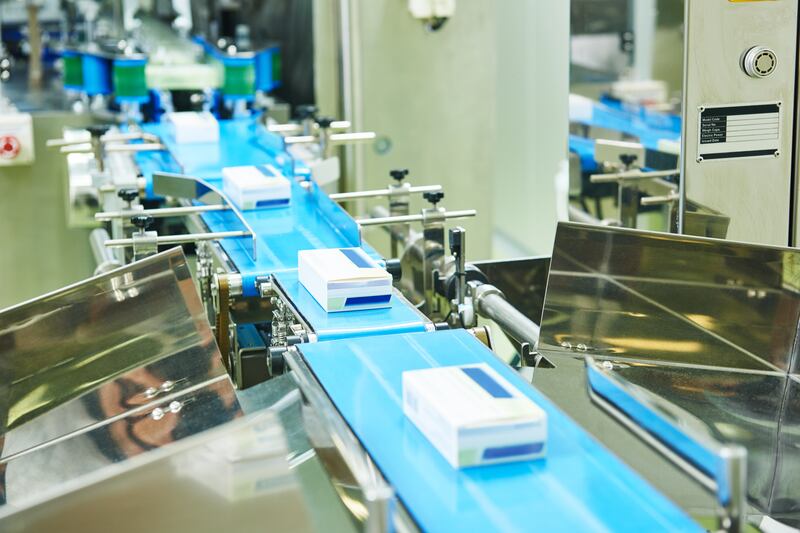As the coronavirus crisis has swept through the United States, it has exposed a troubling vulnerability — America’s excessive reliance on global supply chains. In particular, the United States has become heavily dependent on China and other countries for many of the medicines used in everyday life. This poses a serious problem, since the current pandemic has shut down much of China’s pharmaceutical production. As a result, the U.S. now faces looming shortages of many commonplace drugs.
Washington must act swiftly to rebuild the domestic capacity to produce these needed medicines. President Trump’s recent executive order invoking the powers of the Defense Production Act is a good first step. Thankfully the president is rejecting the advice of those wanting to merely shift dependency from China to countries like India or Ireland.
But how did the United States become so reliant on imported medicines? Over the past 30 years, much of the nation’s drug manufacturing moved offshore, including the production of generic medications that comprise 90% of America’s daily needs. Thousands of these drugs are made with compounds and ingredients produced only in China. This extends to the ingredients for drugs currently used to treat the coronavirus infections; 90% of them are sourced only from China.
The United States no longer manufactures penicillin, for example, and has virtually no capacity to produce raw antibiotic material. The three standard antibiotics used to treat the coronavirus and related infections — azithromycin, ciprofloxacin, and piperacillin — require ingredients made in China. Such dependence on China even includes common household medicines. The U.S. imports 95% of its ibuprofen and 70% of its acetaminophen from China.
Significantly, Americans are using more medications than ever. And pharmaceutical imports have grown dramatically. In 2019 alone, U.S. imports of pharmaceuticals totaled a massive $128.2 billion.
America’s overall reliance on a strategic competitor like China for medical resources is now proving highly problematic. As just one example, China is halting exports of face masks since it needs to supply its own citizens first. Washington must work to determine the full extent of such dependence on China in such diverse sectors as pharmaceuticals, drug ingredients and medical equipment.
In response to the coronavirus, the Trump administration and Congress are considering strategies to boost U.S. production of pharmaceuticals. This should be a high priority, and the economic benefits could be significant. The Coalition for a Prosperous America has researched the economic benefits of such a reshoring program. That study found a major effort to return drug production to the U.S. could create as many as 804,000 good-paying jobs in the first year and add $200 billion to annual GDP.
Why would the United States experience such outsized gains if it rebuilt pharmaceutical manufacturing? The coalition considered what would happen if the U.S. reduced current pharmaceutical imports to levels previously seen a decade ago. That would mean reducing drug imports by roughly 50%.
Reducing this import reliance would significantly boost output and employment in pharmaceutical and medicine manufacturing — two sectors that pay well. In 2018, there were 294,250 workers employed in pharmaceutical and medicine manufacturing, with a median income of $74,890. That’s 47% higher than the median for all private-sector employees. Reshoring domestic pharmaceutical production would create more of these high-quality jobs, providing a valuable boost for the economy.
Bringing drug manufacturing back to the U.S. could also save lives. In 2018, at least 81 Americans died from a contaminated batch of Heparin blood-thinner made in China. Americans would be safer if more of these critical medicines were made at home.
Overall, the U.S. has grown too dependent on imports of pharmaceuticals and other everyday medicines. Washington must act now to rapidly rebuild domestic production of medicines as well as medical devices and supplies. That would be a crucial, necessary step to ensure future national security, patient safety and economic well-being.
Michael Stumo is CEO of the Coalition for a Prosperous America. Twitter: @michael_stumo.


